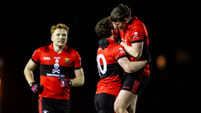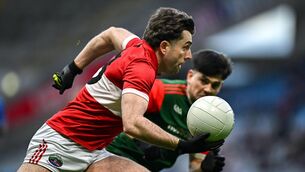Butler unfazed at defeat as Laois strive for glory
“Lookit, Michael Delaney wants people to discuss the state of hurling, and he’s right”, the Tipperary-man reckoned. “If things are left the way they are, they won’t improve. From our point of view, it’s up to us to prove him wrong”.
Flying a kite then, but Butler does agree with the Leinster secretary that something is rotten in the state of hurling: “Democracy has its values, but someone has to give leadership on this, grab the bull by horns. The likes of Laois, Kerry, those on the fringe, do have problems. Dinny (Cahill, another Tipp-man) has done it with Antrim, pulled them in, but the big advantage he has is that Antrim can win an Ulster championship, whereas for us to win a Leinster, or for Kerry to win a Munster, just to get our confidence going, is a tall order”.














